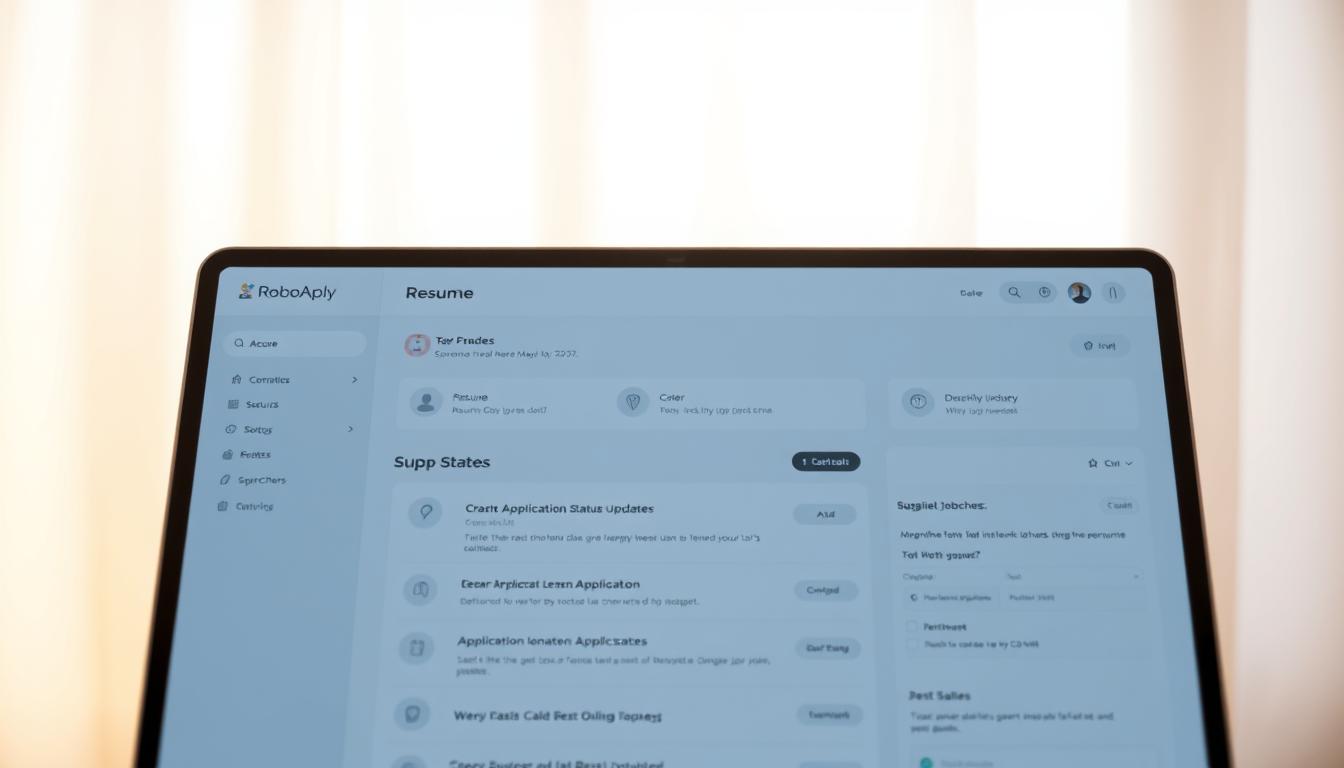Getting your resume just right can feel like a puzzle, especially when you’re trying to pick the best good words to describe yourself for a resume. It’s not just about listing your past jobs; it’s about showing who you are and what you can do. The words you pick can really make a difference, helping you stand out from everyone else applying for the same job. This guide will walk you through how to choose those perfect words, so your resume gets noticed and makes a great first impression.
Key Takeaways
- The right good words to describe yourself for a resume help you make a strong first impression.
- Picking good words to describe yourself for a resume means balancing what you’re like with what’s professional.
- Good words to describe yourself for a resume should match the job description and your industry.
Why Choosing Good Words to Describe Yourself for a Resume Matters

Making a Strong First Impression with Good Words
Your resume is often the first thing a potential employer sees, so the words you use really matter. It’s like meeting someone for the first time – you want to put your best foot forward. Using strong, descriptive words can immediately grab their attention and make you stand out from the pile. Think of it as your personal branding. A successful resume needs to show who you are as a professional.
- Use action verbs to describe your accomplishments.
- Quantify your results whenever possible.
- Tailor your language to the specific job description.
It’s easy to fall into the trap of using generic terms, but those don’t really tell the employer anything about you. Instead, focus on words that highlight your unique skills and experiences.
Balancing Personality and Professionalism with Good Words
It’s a balancing act. You want to show who you are, but you also need to sound professional. The goal is to find words that reflect your personality while still conveying competence and reliability. It’s about being authentic without being too casual. A compelling LinkedIn headline is also important to make a strong first impression.
- Avoid slang or overly informal language.
- Use industry-specific terms where appropriate.
- Get feedback from others to make sure you’re striking the right tone.
Choosing the right words can be tricky, but it’s worth the effort. Using clear, plain language is key to avoid overused business jargon on your resume. It’s about making a connection with the reader and showing them why you’re the best person for the job.
Strategies for Selecting Good Words to Describe Yourself

Okay, so you know why picking the right words matters. Now, how do you actually do it? It’s not just about grabbing a thesaurus and hoping for the best. It’s about being strategic and thoughtful. Think of it as crafting a narrative, not just listing adjectives.
Aligning Your Good Words with Job Descriptions
This is your number one strategy: read the job description carefully. Seriously, treat it like a cheat sheet. Employers practically hand you the answers by outlining the skills, qualities, and experience they want. Don’t just skim it; dissect it. What verbs do they use to describe the ideal candidate? What adjectives pop up repeatedly? These are clues! If they’re looking for someone "results-driven" or "collaborative," those are words you should consider incorporating (if they genuinely apply to you, of course!).
It’s not about blindly copying the job description, but about understanding what the employer values and then showcasing how you embody those values. Think of it as speaking their language.
Choosing Good Words Appropriate for Your Industry
What works in one industry might flop in another. A tech startup might appreciate words like "disruptive" and "innovative," while a more traditional finance firm might prefer "analytical" and "methodical." Do some research! Look at job postings in your field, browse LinkedIn profiles of people in similar roles, and pay attention to the language they use. Are there certain keywords or phrases that seem to be common? Those are the words you want to consider. Also, think about the overall tone and culture of your industry. Is it formal or informal? Conservative or progressive? Your word choice should reflect that.
Here’s a quick example:
| Industry | Potentially Good Words | Potentially Bad Words |
|---|---|---|
| Tech (Software) | Agile, Scalable, User-centric | Traditional, Rigid, Bureaucratic |
| Finance | Compliant, Diligent, Risk-averse | Unconventional, Experimental, Risky |
| Creative (Design) | Conceptual, Aesthetic, Visionary | Generic, Mundane, Uninspired |
Remember to use RoboApply’s AI-powered tool to help identify relevant keywords for your industry. Also, consider using a cover letter template for Word to ensure consistency in your application materials.
Good Words to Describe Yourself for Specific Resume Qualities

It’s not enough to just throw around impressive-sounding words. You need to make sure they actually mean something in the context of your resume and the job you’re applying for. Think about the specific qualities the employer is looking for and choose words that directly support those qualities. Let’s explore some good words to use for specific resume qualities.
Good Words to Convey Professionalism and Reliability
When you want to show that you’re a dependable and professional candidate, certain words can really help. These words communicate that you’re not only skilled but also someone who takes their work seriously. Consider using words like:
- Dedicated: Shows commitment to a task or goal.
- Ethical: Highlights your integrity and moral principles.
- Disciplined: Demonstrates your ability to follow rules and maintain order.
- Punctual: Emphasizes your respect for time and deadlines.
- Resourceful: Shows you can find solutions and overcome obstacles.
It’s important to back up these claims with examples. Don’t just say you’re "dedicated"; describe a time when you went above and beyond to complete a project. This adds weight to your words and makes them more believable.
Good Words to Showcase Problem-Solving Skills
Employers love candidates who can think on their feet and solve problems effectively. To highlight your problem-solving abilities, try incorporating these words:
- Analytical: Shows you can examine information and draw conclusions.
- Creative: Highlights your ability to come up with new and innovative solutions.
- Strategic: Demonstrates your ability to plan and think ahead.
- Decisive: Emphasizes your ability to make quick and effective decisions.
- Innovative: Shows you can introduce new methods and ideas.
Think about using these words in your creative marketing resume to really stand out. You can also use these words to enhance your researcher resumes.
To make your resume even more impactful, consider using action verbs that showcase your skills. These power words can help you create a more professional and effective resume. For example, you can find 101 powerful resume words to help you stand out. Additionally, using strong action verbs related to ‘managing’ can further enhance your resume.
Want to make your resume shine even brighter? Our special tool can help you pick the best words to describe yourself, making your application stand out. It’s super easy to use and can really help you get noticed by hiring managers. Check out our website to learn more and give your resume the boost it needs!
Wrapping It Up
So, there you have it. Picking the right words for your resume really does make a difference. It’s not just about listing your jobs; it’s about showing who you are and what you can do. Think about what the job needs, and then find words that honestly show you have those qualities. Don’t just throw in fancy words for no reason. Make sure your words match your real experience. When you do that, your resume won’t just be a list; it’ll be a clear picture of why you’re the right person for the job. Good luck!
Frequently Asked Questions
Why are good words so important on a resume?
Using strong, clear words on your resume makes a big difference. It helps you stand out to hiring managers and shows them right away that you’re a good fit for the job. Think of it like making a great first impression without even being there in person.
How do I pick the best words for my resume?
You should pick words that match what the job description asks for. Also, think about the kind of work you do and the industry you’re in. For example, a creative job might use words like ‘imaginative,’ while a technical job might use ‘analytical.’ Always be honest about your skills.
Do these words help with computer programs that read resumes?
Yes! Many companies use computer programs called Applicant Tracking Systems (ATS) to scan resumes. These programs look for keywords from the job description. Using similar words helps your resume get noticed by these systems, increasing your chances of a human seeing it.


















